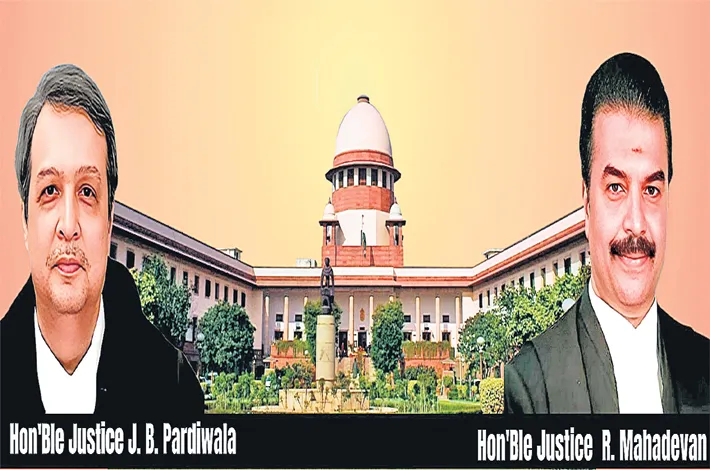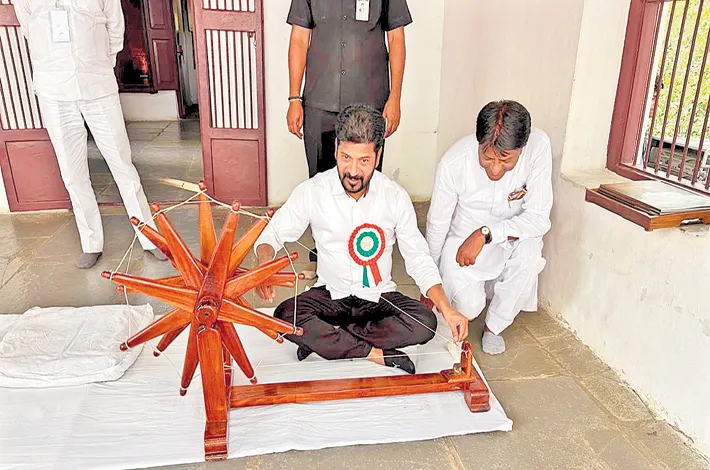A move towards ‘Viksit Bharath’
07-04-2025 12:00:00 AM

The Central government now has amended the Waqf Act in Parliament on the basis of JPC report after discussions with various sections bought in
At a time when the country is moving in the direction of ‘Viksit Bharath’ Prime Minister Narendra Modi is making all efforts to correct the historical mistakes made by the Congress governments in the past and is thoroughly reviewing and reforming such decisions of appeasement. Congress has always acted such that vote bank politics are more important than the principles of justice. Shabano's case and also the amendments made to the Waqf Board Act in 2013 are few live examples. Narendra Modi government on the other hand has passed the Waqf Amendment Act in a fully constitutional and democratic manner by taking into consideration the opinions of all sections of the society and also based on the report of the Joint Parliamentary Committee (JPC).
Lack of transparency in management of Waqf properties
Of the 8,68,054 Waqf properties across the country, 4,36,169 properties do not have proper records. As many as 40,951 cases are pending against waqf properties. The fact that 9942 complaints made by people belonging to the Muslim community is a testimony to the actual situation. In states like Uttar Pradesh, Bihar, Tamil Nadu, Karnataka entire villages where Hindus constitute almost 90% of the population, are also being declared as waqf properties. According to the Sachar Committee, if the assets are managed properly, at least Rs 12,000 crore of revenue will be generated every year. But due to organized defects, political backings, chaotic management with an illegal mentality, even the poor muslims are suffering.
The Central government now has amended the Waqf Act in Parliament on the basis of JPC report after discussions with various sections bought in. It was discussed democratically and passed in both the Houses. In the management of the Waqf Board ,measures are aimed at complete transparency. Acquisition of any land through grabbing and without transparency is going to disappear. With the repeal of Section 40 of the old act, undemocratic policies and the right to unilaterally occupy land are totally eliminated. The Waqf board will no longer have the power to inquire into and decide the land status. The authority is given to the collector and officers above. Giving priority to women along with other religions in the Waqf Board is like giving space to social harmony. Provisions like digitization of board properties, checking the documents, controlling the role of muthavallis, giving an oppurtunity to appeal in the High Court about the decision taken by Waqf Board- these help in reducing violation and also strive towards giving justice to all.
The Waqf Board (Amendment) Bill, 2025 doesn’t hurt the interests of any community. It is in line with Prime Minister Narendra Modi's goal of achieving a “Viksit Bharath” by 2047, adhering to the principle of unity in India's diversity. During the discussions held after its introduction in the Lok Sabha and the Rajya Sabha, the issues raised by the NDA MPs have evoked thoughts among the people of the country. Leader of the Opposition Rahul Gandhi was absent from Parliament during such a crucial bill. This indicates irresponsible behaviour of the Congress party towards the country. From the abolition of Triple Talak to the abrogation of Article 370, from the One Nation One Election to the Waqf Amendment Act, Prime Minister Narendra Modi, has taken decisions beyond political gains.
(Tulla Veerender Goud is official spokesperson of Bharatiya Janata Party Telangana Unit)








